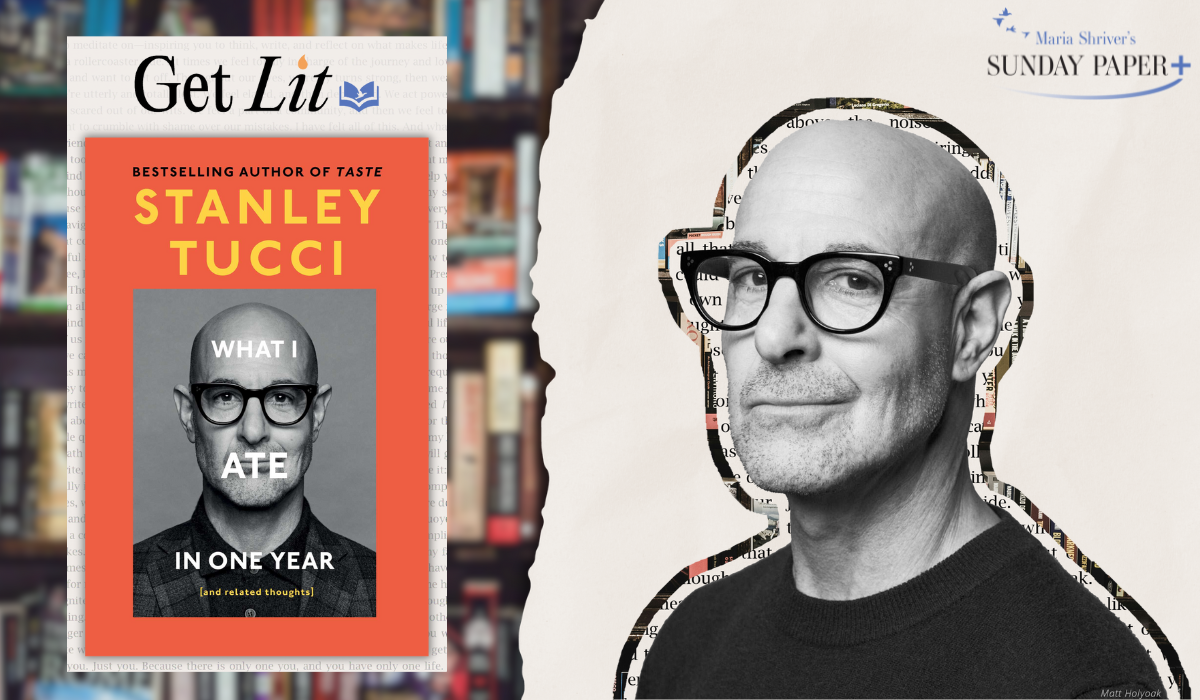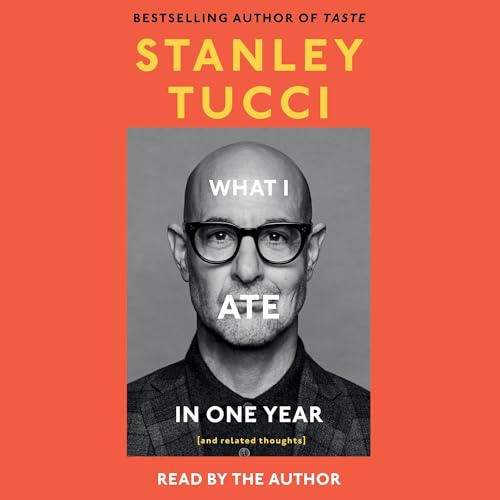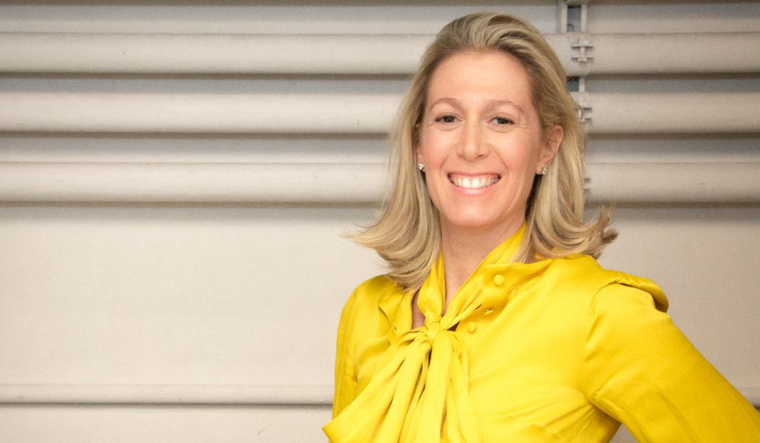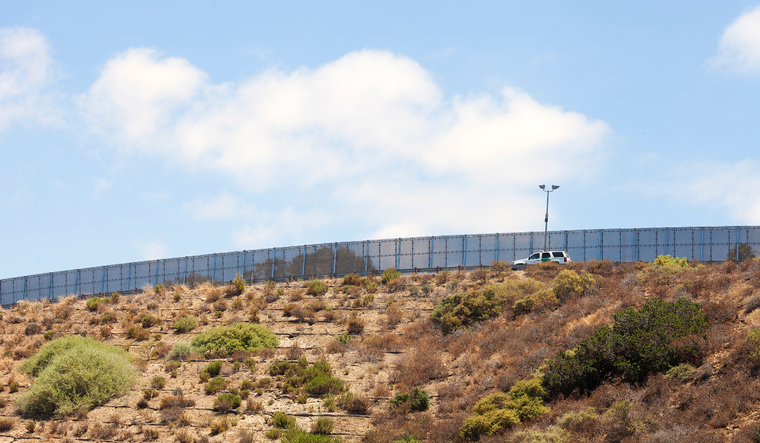Get Lit with Stanley Tucci: An Exclusive Excerpt from “What I Ate in One Year”
Who
Stanley Tucci is an award-winning actor, writer, director, and producer. You may know him from Julie & Julia, The Devil Wears Prada, or The Hunger Games—to name just a few of his iconic roles. A lover of all things culinary, Stanley wrote and directed Big Night and is the host of three-time Emmy winning Searching for Italy. He is the bestselling author of Taste: My Life Through Food and just this week released his brand-new book, What I Ate in One Year.
What
In What I Ate in One Year, Tucci records twelve months of eating—in restaurants, kitchens, film sets, press junkets, at home and abroad, with friends, with family, with strangers, and occasionally just by himself. Through food he marks—and mourns—the passing of time, the loss of loved ones, and steels himself for what is to come.
Why
Stanley Tucci told The Sunday Paper he wrote this book “to show how good food (not “fancy” food) is something that connects us to the earth, the seasons, our present, our past, and perhaps most importantly, to one another. It is a chronicle of meals that are good, difficult, comical, brilliant and terrible. But ultimately it is a story about the passage of time through the prism of food.”
“I hope readers take away the understanding that eating is and should be a joyful thing not just a necessary one. Life is short, let’s make our meals together longer.”
& We
…chose What I Ate in One Year as our Get Lit pick because it’s a delicious celebration of the power of food to bring us together, starting with Stanley’s ability to write each passage like daily letters to a dear friend. Enjoy!
Here’s Your Exclusive Excerpt
A Preamble
I never dream about food. At least there are no dreams I’ve had about food that I can remember. I dream about so many things, and like most people’s, my dreams are wildly complex, nonsensical, and filled with twisted takes on past experiences or fears I’ve had or still have, like the inability to contact my wife, Felicity, or physically protect myself or a loved one.
Often, I dream that I am about to graduate high school but have avoided going to math class all year and keep hoping that I will get away with it and still be allowed to graduate. The dream is so real that I awaken in a state of terrible anxiety, believing that I will be found out, won’t be able to graduate, and will need to repeat my senior year, until I suddenly realize that it was just a dream and in fact I am no longer in high school but in my sixties, and even though I am still dreadful at math, I did indeed graduate and have gone on to lead a very full life.
I also consistently have the classic “actor’s nightmare.” This subconscious manifestation of a deep-rooted fear entails being onstage, naked, half undressed, or in the wrong costume, filling in last minute for another actor, completely under-rehearsed, and not knowing one’s lines. (Ask any actor and they will tell you they have had basically the same dream.) The irony is that I actually experienced it twenty years ago, when I was doing a play that required me to be naked for the first ten minutes or so and at least once during those ten minutes I completely forgot my lines. Unfortunately some dreams do come true.
And then, of course, there’s death. I dream a lot about death. The dead. Relatives, friends, and frequently my late wife, Kate. It has been said that if we have “unfinished business” with someone or something in our lives, that event or person will visit us again and again in our dreams. I suppose it makes perfect sense. It’s a way for our minds and hearts to deal with issues we’ve never fully dealt with.
But as I said, even though food plays a huge part in my waking life, it never plays any part in my dreams. Maybe because I don’t fear it. It just makes me happy. It doesn’t provoke anxiety, and in fact it may be the only significant aspect of my life that brings me peace. All others—work, children, marriage, friendships, family—bring me real joy, but I can’t pretend they are not anxiety inducing. However, food is just there.
A beautiful, varied thing waiting to bring satiety and solace and offer hope while death and arithmetic haunt me. Speaking of numbers, food, and death, I’ve always imagined that there are three possible experiences waiting for us when we die.
The first is that we die, and then we simply are no more. There is nothing. And that is that.
The second is that we die and find that death is a long meal alone with terrible food.
The third is that we die and find that death is a table resplendently set with an extraordinary meal for us and all those we’ve ever loved to share for the rest of eternity.
If possible, when my time comes, I’ll let you know which one awaits.
March 1
While I was on my way home after a long day of filming, I stopped at Circoletto, a little wine bar/restaurant around the corner from my hotel. I had always wanted to go in as it looked quite different from a lot of others in the area, but I never had. It was a casual place filled with a younger crowd (well, just about any crowd is younger to me these days, unless I’m visiting a nursing home) that seemed to be comprised of mostly Italians. I ordered a glass of wine at the long counter from one of the owners, a young fellow with lots of “tats,” who was extremely excited about my presence, to put it mildly. Practically jumping up and down, he told me I had to try one of his sandwiches. I told him I had just eaten (meaning I had hurriedly ingested the remains of that day’s lunch before leaving set), but he insisted that I try his sandwich, and I insisted that I really was quite full, and then he insisted some more, and then his brother came over and also insisted, and the guy sitting next to me, who was a friend of theirs, also insisted, and being outnumbered and at this point exhausted, I had no choice but to acquiesce. Within moments, a warm sandwich of ox tongue, homemade pickles, and a delicate mayonnaise on toasted bread was placed before me. Because of my difficulty eating meat (again, due to a lack of saliva), I was hesitant to try it, for fear of choking, but I did. I’ve never made a better decision. I’ve also never been so glad to be bullied into eating something. It was delicate and rich and like nothing I had ever eaten in Rome. It was a wholly new thing made with classic Roman ingredients prepared in totally new ways. Then the brothers, whose names are Nicolò and Manuel, served me an artichoke, alla giudia (yum), and another glass of wine, then I ate something else (I can’t remember what, but it was without having walked through these doors to sit at this culinary oracle disguised as an ordinary wine bar.
May 14
Felicity and Matteo are both on the mend, and the sun showed its shy self. We sat in the garden and read a bit, meaning Felicity read an entire book and I looked at Pinterest while the kids jumped on the trampoline.
I wrangled four fading zucchini from the fridge, sliced them into rounds, coated them with olive oil and salt, and placed them in the oven to roast for about twenty minutes.
I fried up some sliced potatoes in a cast-iron pan, then layered the whole lot in a small baking tin with the previous day’s marinara and some grated Parmigiano and baked it for about thirty minutes. This is the way my father’s family made eggplant parmigiana but this time I just made it without the eggplant.
Full disclosure: I am writing this at 10:05 a.m. the next day. I just ate the zucchini parmigiana on a warm baguette for breakfast. I had to stop myself from eating all of it. My repertoire is limited, but I must admit that the dishes I do make are pretty good. However, I did burn the potatoes a bit in my rush to cook them quickly.
Impatience. In so many attempts to save time, so many other things are wasted.
In the afternoon we used the leftover chicken meat from Felicity’s stock to make a chicken salad. I tried to replicate Aurelien’s mayo but the sunflower oil I used was so potent that it tasted dreadful, and I had to dump it, which was frustrating because I’d practically torn a rotator cuff whisking the goddamn stuff.
Defaulting to Hellmann’s, which I actually love, I mixed it into the chopped chicken with some finely diced celery and chives. Felicity and I ate it on little toasted crackers we had brought from France topped with slices of cucumber.
Why is chicken salad so comforting? Tuna salad as well. I get cravings all the time for a tuna sandwich, with lettuce on toasted rye, from a Manhattan coffee shop. I must have eaten hundreds of them over the two decades I spent in that town. Paired with a bowl of soup, it’s a very hearty and affordable meal. As I write this, all I want is one of those sandwiches, and sadly that’s not going to happen. I used to walk practically the length and breadth of Manhattan almost every week when I found myself jobless, which was quite often. I would visit galleries, museums, and bookshops, or just wander through neighborhoods taking in the architecture of old New York, which new development gnawed away at year by year. My youthful ramblings were sustained by bowls of soup (chicken noodle, split pea) and sandwiches (BLT, turkey club, chicken salad, and of course tuna) eaten in old coffee shops that themselves have since fallen victim to “progress.”
What’s the first food memory we have? I don’t have one. Does anyone? Obviously, we’re just babies when we first breastfeed, first slurp soft food, and first chew solid food, but no one I’ve ever met has a memory that stretches back that far. Yet even as we mature and become capable of eating more and more things, how many people can tell you they remember the very first time they ate pasta or steak or fish, and whether they liked it or not? When did you first realize you liked salmon? Or a hamburger? Or French fries? Or a tomato? Or basil? No one remembers.
We just know that we like them, and so we eat them. We are more likely to remember why we don’t like certain things, but this usually happens when we try something new as an adult. But the reasons for not liking certain flavors since childhood are usually unclear. (Unless one came from a household of lousy cooks, which creates confused palates and unreasonable dislikes, in which case the reason is very clear: everything just tasted awful.) But basically, like or dislike, most of us don’t remember our very first taste.
It’s like the realization that we are mortal. Tom Stoppard wrote in his brilliant play Rosencrantz and Guildenstern Are Dead, “Whatever became of the moment when one first knew about death? There must have been one, a moment, in childhood, when it first occurred to you that you don’t go on forever. It must have been shattering, stamped into one’s memory. And yet I can’t remember it.”
A few hours later I ate some of the potato-leek soup straight from the fridge. It was nice and chilled and perfect for a hot day. However, little strands of leeks and onions kept getting stuck in my teeth because I hadn’t puréed it properly, but I wasn’t about to start now. Why? Impatience.
That evening Felicity sautéed some scallops, but they didn’t really sear because the pan had not gotten hot enough, which was my fault because I had reduced the heat, as the butter was about to burn, and didn’t communicate that. They didn’t work out as well as she had hoped. She ate a few, but as I had overindulged in cold soup not long before, I had only one. We stashed the rest in the fridge. Afterward we watched Colin from Accounts, a brilliant Australian half-hour comedy. It alleviated all sadness caused by the underseared scallops.
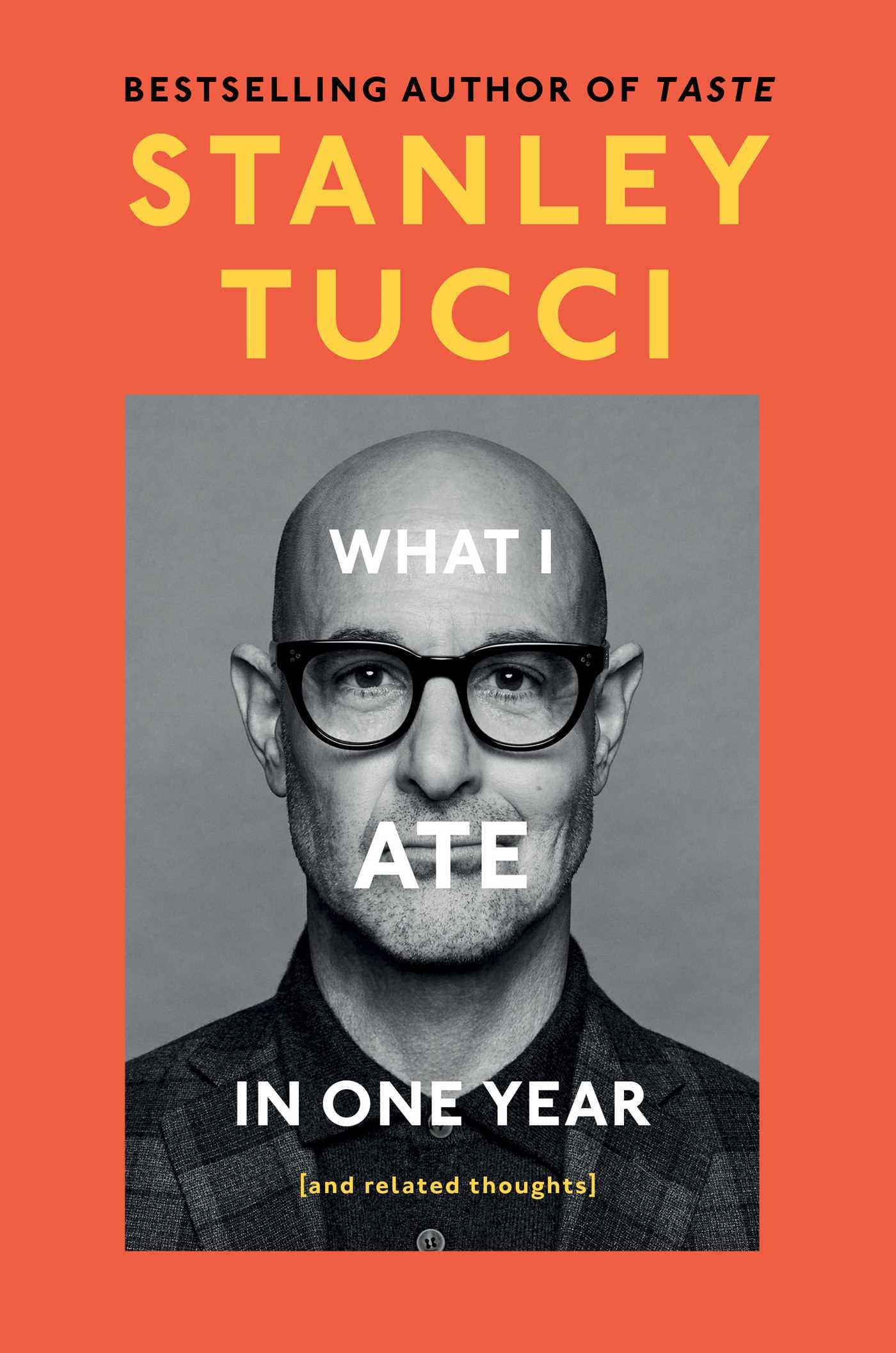
Excerpted from WHAT I ATE IN ONE YEAR (and related thoughts) by Stanley Tucci. Copyright © 2024 by Stanley Tucci. Reprinted by permission of Gallery Books, an Imprint of Simon & Schuster, LLC.
Copyright © 2024 by Stanley Tucci. Audio excerpts courtesy of Simon & Schuster Audio from the audiobook WHAT I ATE IN ONE YEAR by Stanley Tucci, read by the author, published by Simon & Schuster Audio, a Division of Simon & Schuster, Inc. Used with permission from Simon & Schuster, Inc.
Discussion Questions: What role does food play in your relationships? Do you have a favorite food memory?
Bonus Question: It's dinner and a movie night at home with one person of your choosing:
- Who's your dinner guest?
- What's for dinner?
- What Stanley Tucci movie or series are you watching?
Please note that we may receive affiliate commissions from the sales of linked products.

